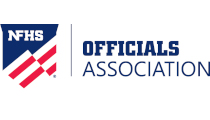Officiating can help graduates remain in games they love
By Steve Matthies on June 09, 2016 officials Print
This article is reprinted from the Herald News in Klamath Falls, Oregon.
His voice reverberated with frustration and concern — for good reason.
“We have lost 15 or 16 guys,” Eddie Lewis said. “We need more people. It takes four or five years to get a guy trained, and those are the guys who have left.”
His sentiments easily could be echoed by other commissioners of the various sports officials associations in the area. Numbers are dwindling as veteran officials retire after, quite often, decades of service and new, young officials are not stepping forward.
It is a cause for concern — for football, volleyball, soccer, wrestling, basketball, baseball and softball.
The reasons are legion, and not just in leagues serviced by Klamath Falls-based officials.
Medford, Grants Pass and other communities struggle, too.
It now is a concern for athletic directors and often means the usual realm of Tuesday, Friday and Saturday high school sports now include contests on Mondays and Wednesdays to accommodate the limited number of game officials.
Fans can grouse all they want about the “quality”of officiating. Doing so simply compounds the issue.
Part of the solution is easy.
As hundreds of young people graduate from high school the next two weekends, with colleges having graduation ceremonies from mid-May through Mid-June, the potential pool for more officials is obvious and large.
Only about five percent of all high school athletes are able to compete at the collegiate level.
Only about two percent of all college athletes are able to compete at the professional level.
There are limited numbers of places for budding coaches, too.
What is left is a huge, massive pool of individuals who could, maybe should, become officials.
Lewis said he has often told young people to get into officiating rather than work a fast-food job. Hang with it, develop the skills necessary to work at the varsity high school level, possibly beyond, and it pays better.
There also is fun involved.
A high school graduate headed to college who wants a good, rewarding part-time job that easily can pay for a significant portion of necessary textbooks, or other college-related expenses, can be met through officiating.
Local officials associations provide arbiters for junior varsity, freshmen, junior high, summer leagues and a variety of other youth programs. There are a plethora of opportunities to remain a part of the game(s) most of us enjoyed during our school years.
Personally, I loved officiating. I work basketball and baseball. Working home plate to call balls and strikes was especially fun. I never endured more pressure than working the last inning of a perfect game.
Learning the mechanics to be able to work high-level games was a gratifying challenge, and fun.
Many years ago, while at Mankato State University, a school at the time of 25,000 or so students, I worked the intramural championship basketball game between the Black Student Union (mostly track and football athletes) and Tau Kappa Epsilon (mostly football and baseball players), teams that had survived the playoffs.
One of the greatest compliments I ever have received came after the game when the officials of the upcoming MSU varsity men’s basketball game liked what they had seen, told me so, and asked if I was interested in joining their group.
I moved on, instead, to a sports editor’s position elsewhere in Southern Minnesota.
Officiating, though, helped make my career truly fun and fascinating.
Steve Matthies
Steve Matthies is Herald and News sports Editor. He can be reached at [email protected].
Most Recent Articles
- nfhs news NFHS Learning Center Delivers 25 Millionth Course
- Track & Field/Cross Country article Effective Communication with Athletes and Coaches
- nfhs news Player Equipment Changes Highlight 2025 High School Football Rules Revisions
- Player Equipment Changes Highlight 2025 High School Football Rules Revisions
- nfhs news Judgment Call on Second Contact Eliminated in High School Volleyball






